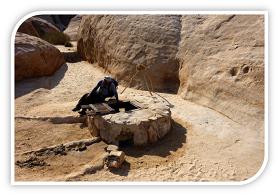Loneliness
Loneliness
It is being called the taboo of today: loneliness. People prefer to be silent about it rather than discuss it with others. At the same time, it is a growing problem.
What is the reason for the increasing loneliness? Some point to the “greying” of the Dutch population, but I think there is more to be mentioned than the greying. It is known that among the young professionals — aged 30-45 — loneliness is increasing. Something else is happening and one of the reasons has to be: the larger connections and contexts are losing their meaning.
As church we are concerned about decreasing membership numbers but let us not forget that this phenomenon happens on a grand scale today. It is — as recently shown — ever more difficult to find people for the work in the town council. And also trade unions, broadcasting companies, and political parties notice that it is less simple to hold on to their members, let alone to increase their membership. Today’s man appreciates his individuality and does not like to be tied down. With that a measure of cohesion in our society has disappeared, and that has consequences for loneliness.
It is not good…⤒🔗
Whoever asks himself if the Bible does say something about loneliness will discover some interesting things. The first time we hear in the Bible that something is not good in the Lord’s eyes is in Genesis 2:18. Each time at the end of the creation-day it sounded that it was good, but now something is not good. And what are we talking about then? About Adam being alone. “It is not good that the man should be alone.”  And then Eve is given to Adam, as a helper for him. Next you see that in Genesis 11 alienation between people arises — which seems an important step towards loneliness — after the building of the tower of Babel. From this I hold to the view that there is a connection between alienation between people and alienation with the Lord God, which already is written about in Genesis 3 and is again highlighted in Genesis 11.
And then Eve is given to Adam, as a helper for him. Next you see that in Genesis 11 alienation between people arises — which seems an important step towards loneliness — after the building of the tower of Babel. From this I hold to the view that there is a connection between alienation between people and alienation with the Lord God, which already is written about in Genesis 3 and is again highlighted in Genesis 11.
In the Gospels we see time and again that the Lord Jesus places people (back again) in a community. Think about the woman with the flow of blood from Mark 5: for twelve long years she had been banned from the community, unclean due to her illness. She is healed by touching Jesus, but he does not let her sink back again into anonymity. He takes time to tell her what has happened with her, so that the bystanders could also hear it. Or what to think of the lepers who are healed by Jesus, and so are rescued from their isolation, in which they dwelt due to their illness? Such a quick glance in Scripture makes one thing clear: loneliness is not something from God. On the contrary: he places people in a community.
Community in the Gospel of John←⤒🔗
Now we must be very careful that we do not get stuck on the surface. Before we know it, we see beyond the secret of living together that the Bible reveals to us. To be clear what I mean, let me “zoom in” on the Gospel of John. I first think then of the Samaritan woman from John 4. In the heat of the day she is going to draw water from the well — and even though this is not mentioned by the apostle, you cannot but think that she does this at this time to avoid the people.  We can be fairly sure that people are talking about her, because of her lifestyle. To avoid this gossip, she is going to draw water at a time when no one will be there. After Jesus has spoken with her, she runs back to the town — filled with joy — and calls on her townsfolk. When Jesus uncovered up her past, and despite that past promised her a future, then she can return uprightly to her town’s community. It is remarkable what she then says: “Come, see a man who told me all that I ever did. Can this be the Christ?” When Jesus starts to talk about her past, it is not threatening, but liberating.
We can be fairly sure that people are talking about her, because of her lifestyle. To avoid this gossip, she is going to draw water at a time when no one will be there. After Jesus has spoken with her, she runs back to the town — filled with joy — and calls on her townsfolk. When Jesus uncovered up her past, and despite that past promised her a future, then she can return uprightly to her town’s community. It is remarkable what she then says: “Come, see a man who told me all that I ever did. Can this be the Christ?” When Jesus starts to talk about her past, it is not threatening, but liberating.
Towards the end of the gospel we see the Lord Jesus speaking with Peter. Up to three times Jesus asks him, “Simon, do you love me?” Jesus himself brings up Peter’s denial. And Peter is encouraged by Jesus to not speak about himself anymore, but to seek his strength in Jesus’ word: “Lord, you know everything; you know that I love you!” And so Peter is returned by Jesus to the community of the disciples: his past has been discussed and he has received a new future.
Finally, it says a lot that Jesus in the Gospel of John gives from the cross John and Mary to one another as mother and son. It is he who brings them together, and that is also how they receive each other: Jesus always standing as it were in the middle of them. From the cross he connects people, and this means that the unity always is tied to the work that the Lord Jesus came to do. The church community originated around the cross and we must not forget that.
Community of Sinners←⤒🔗
We see that the ending of loneliness in the Bible always goes together with the taking away of a past, of guilt. I say it this way on purpose, because this is crucial. You cannot say that loneliness and guilt are directly related. However, loneliness is a result of the brokenness of the good creation.  That then means that the evil one will hurry over to keep loneliness alive. Not for nothing is his name in Greek diabolos, and that means “disperser”: what is one, he disperses. He likes to isolate people. How? By making them believe that for them there is no place with the Lord God, within the communion of Christ. By holding them locked in their past and to impress upon them that for these things there is no forgiveness. He re-draws God’s merciful face into a strict and repelling face—this is how he began (Gen. 3!) and he still works this way. This is how he tries to prevent a lonely person from finding forgiveness and peace within the community of Christ.
That then means that the evil one will hurry over to keep loneliness alive. Not for nothing is his name in Greek diabolos, and that means “disperser”: what is one, he disperses. He likes to isolate people. How? By making them believe that for them there is no place with the Lord God, within the communion of Christ. By holding them locked in their past and to impress upon them that for these things there is no forgiveness. He re-draws God’s merciful face into a strict and repelling face—this is how he began (Gen. 3!) and he still works this way. This is how he tries to prevent a lonely person from finding forgiveness and peace within the community of Christ.
Where we know this, we ought to take it into account within our church community. We believe that the church is the communion of saints. But we do not always see this, do we? Do we dare to be a communion of sinners? A place in this world where we do not have to portray ourselves to be nicer than we are, but where we can drop the mask, because here it is not threatening to say who I am and what I have done. We talk in the church about many things: we do talent searches, we search for God’s plan in our lives, we experience spiritual growth — and all of this is important. But do we not forget all too easily, that in the end we are little more — and that we should want to be little more — than a community of sinners around the cross? Is there room within our church community for the un-pious one? For the sinner? How does he feel if he hears people around him speak about the one deep experience after the other? What he already thought will be confirmed: all these beautiful things are not for him. It seems, therefore, important to me that within the community of Christ we speak about the misery of our lives. I realize that this requires great precision. Before you know it, you derail, and man appears in the centre again. But a sincere heart-to-heart conversation, closed with a prayer to him who knows everything about us — and who also has a future for us — this can bring such a relief. This can open the way to the church community for a lonely person. Christ brings together not pious people, but sinners.
Finally, I realize full well that in this article only one aspect of loneliness was addressed. The issue is wider and deeper. Perhaps you are saying: stop already, I know all about this! But I hope that the conclusion holds for the breadth of the issue: that the community of Christ in this world will be a place where we can drop masks and together become quiet around the cross of him who brings us together. Really brings us together and eliminates loneliness.
This article was translated by Bram Vegter

Add new comment